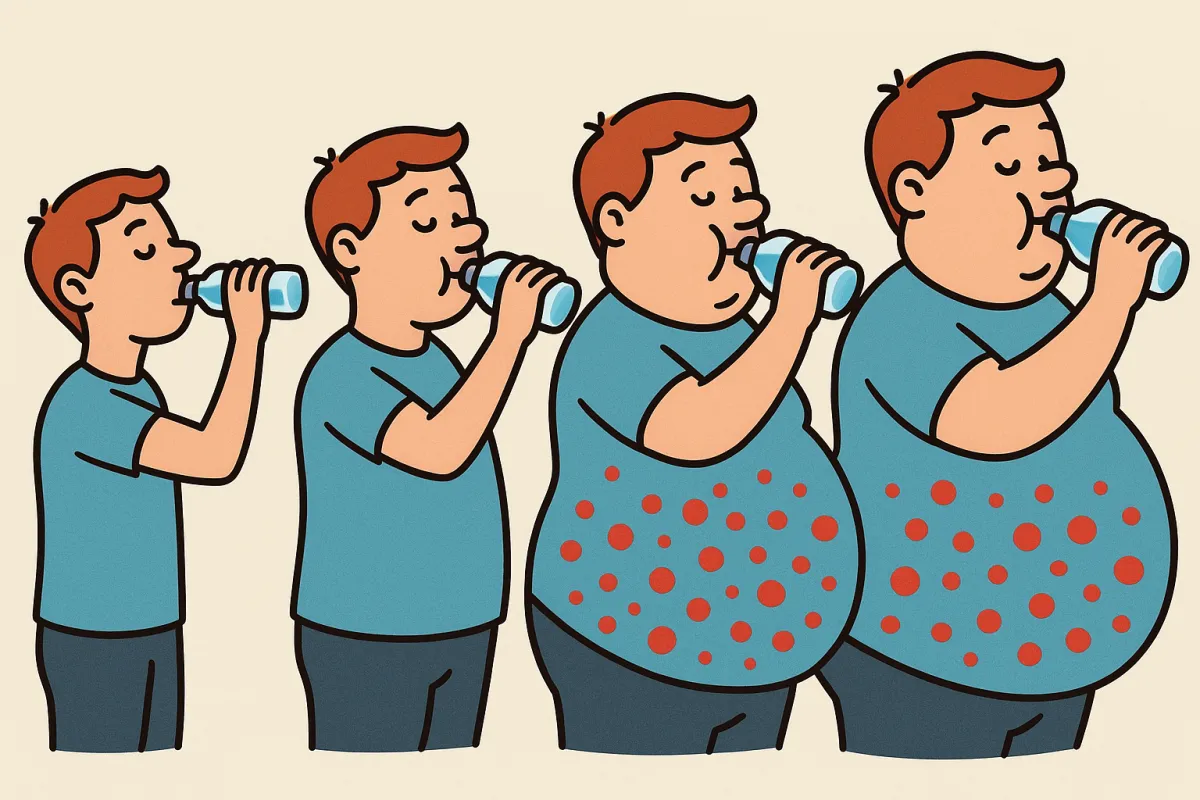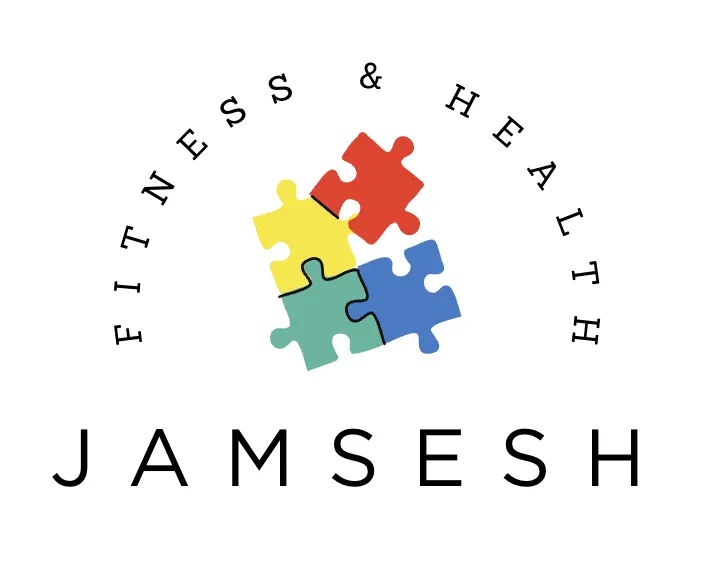J A M S E S H
Julie-Anne Minerals
Sleep Exercise Stress Hormones
Where We Put All The Pieces Of Your Puzzle Together

Knowledge is Your Super Power

Is Your Water Bottle Making You Fat?

Knowledge is Your Super Power
Is Your Water Bottle Making You FAT?
Here's What Science Says
When most people think of weight gain, they think calories, carbs, or maybe even hormones. But what if one sneaky source could be sitting on your desk right now—disguised as something healthy?
We’re talking about plastic water bottles.

Yes, the same "hydration hero" you've been carrying to the gym might actually be working against your fat-loss goals.
Microplastics: Tiny Particles, Massive Impact
Scientists have found microplastics and nanoplastics (even tinier particles) everywhere: the ocean, the Arctic, the air—and now, inside the human brain, heart, testicles, placenta, and poop. These particles are now considered inescapable.
How do they get into our bodies?
Drinking from plastic water bottles: One liter of bottled water can contain up to 250,000 micro- and nanoplastic particles—far more than tap water.
Breathing them in: They're in household dust, car interiors, clothing fibers, and polluted air.
Eating from plastic packaging: Especially common with plastics labeled #1, #2, and #4.
Washing plastics: Repeatedly washing or heating plastic bottles (even BPA-free ones) increases chemical leaching.
Here’s the kicker: many of these plastics contain over 10,000 chemicals, and only a fraction have been tested for safety. Around 2,000 are already known to be toxic.
Plastics as “Obesogens”: How They Make You Store More Fat
There’s a whole category of chemicals now labeled obesogens. These aren’t just passive bystanders. They actively interfere with your metabolism, fat-burning ability, and hormone balance—especially those coming from plastics like phthalates and BPA.
They mess with fat cells: Obesogens tell your fat cells to store more fat and grow larger.
They impair your mitochondria: Microplastics accumulate in the very part of your cells responsible for energy and fat-burning—your mitochondria.
They disrupt hormones: Plastics mimic or block hormones like estrogen and thyroid hormones, impacting metabolism and even fertility.
A 2024 study found a teaspoon's worth of plastic particles in the human brain, with levels increasing by 50% in just eight years.
Another recent study published in the New England Journal of Medicine found microplastics in the arteries of 50% of participants. The people who had them were 4.5 times more likely to die, have a stroke, or develop heart disease in just 3 years.
Beyond Calories: Plastics Alter Your Metabolism
Weight loss is no longer just about “eat less, move more.” Chronic exposure to plastics and microplastics alters your entire metabolic landscape:
Raises inflammation: Chronic low-grade inflammation damages mitochondria and is tightly linked to obesity, insulin resistance, and fatty liver disease.
Disrupts gut health: People with higher microplastic levels in their stool had higher rates of Crohn’s and colitis. A disrupted gut means poor detox and poor weight regulation.
Affects future generations: Studies in animals show that when mothers are exposed to microplastics during pregnancy, their babies are more likely to have altered metabolism and increased fat storage—even if their diet is normal.
What Can You Do About It?
You can’t avoid all plastic, but you can reduce your exposure and support your body’s ability to clear it out.
Try this:
Ditch plastic water bottles: Use stainless steel or glass.
Don’t heat food in plastic: Even “microwave safe” containers leach chemicals.
Poop daily: Seriously. It’s your #1 detox pathway. Fiber and hydration are key.
Support your liver and kidneys: Crucial for filtering out chemical compounds.
Feed your gut: Certain bacteria help break down endocrine disruptors like BPA.
Sweat regularly: Skin is a major detox organ. Exercise and sauna can help.
Final Thought
If you’ve been eating clean and working out but still feel stuck, it might be time to zoom out. Weight gain is no longer just about diet—it's about total toxic load. And microplastics? They're tipping the scale in more ways than one.
Sources:
New England Journal of Medicine (2024). Microplastics in Arterial Plaque Study.
PNAS (2024). Nanoplastics Found in Human Brain Samples.
Environmental Science & Technology (2023). Plastic Particle Count in Bottled Water.
Obesity Reviews (2022). Endocrine-Disrupting Chemicals and Obesogens.
Nature Reviews Endocrinology (2021). Mitochondrial Dysfunction and Metabolic Syndrome.

© Copyright JAMSesh Fitness and Health 2025
